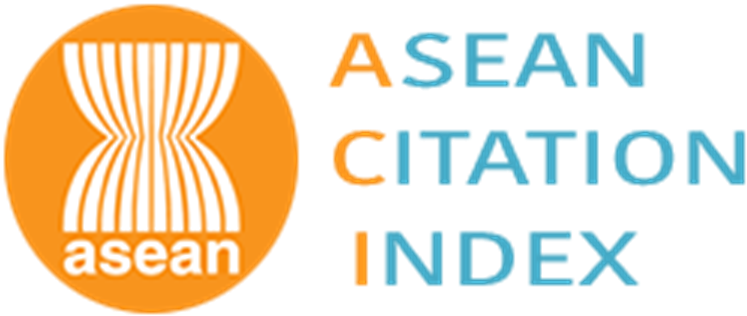กฎหมายควบคุมอาคารที่มีผลต่อการปฏิบัติงานของวิศวกรโยธา
Thai Building Laws towards Practices of Civil Engineers
Abstract
การศึกษากฎหมายควบคุมอาคารที่มีผลต่อการปฏิบัติงานของวิศวกรโยธาในงานวิจัยนี้ เป็นการศึกษาวิจัยเชิงเอกสาร โดยมีวัตถุประสงค์เพื่อ 1) ศึกษารายละเอียดของกฎหมายควบคุมอาคาร อันประกอบด้วยพระราชบัญญัติควบคุมอาคารและกฎกระทรวงที่ออกตามพระราชบัญญัตินั้น 2) ศึกษาบทบาทและความรับผิดชอบในการปฏิบัติงานของวิศวกรโยธาตามพระราชบัญญัติการประกอบวิชาชีพวิศวกรรมควบคุม และ 3) วิเคราะห์กฎหมายควบคุมอาคารที่มีผลต่อการปฏิบัติงานของวิศวกรโยธา เพื่อเป็นแนวทางในการพัฒนาเทคโนโลยีหรือสารสนเทศเกี่ยวกับกฎหมายสำหรับการปฏิบัติงานของวิศวกรโยธา ผลจากการศึกษาพบว่า พระราชบัญญัติควบคุมอาคารมีบทบัญญัติระบุการบังคับใช้และการยกเว้นไม่บังคับใช้สำหรับอาคารบางประเภทหรือที่ตั้งในบางพื้นที่ที่กฎหมายไม่บังคับใช้ บทบัญญัติในกฎหมายมีเนื้อหาทั้งส่วนที่เกี่ยวข้องและไม่เกี่ยวข้องกับการปฏิบัติงานของวิศวกรโยธา ส่วนที่เกี่ยวข้องสามารถพิจารณาตามขั้นตอนการปฏิบัติงานของวิศวกรโยธาได้ในขั้นตอนการสำรวจและออกแบบ การยื่นขออนุญาต การปฏิบัติงานในระหว่างการดำเนินการก่อสร้าง ดัดแปลง รื้อถอน เคลื่อนย้าย รวมถึงการใช้และเปลี่ยนการใช้อาคาร และความรับผิดชอบหลังจากดำเนินการแล้วเสร็จ โดยกฎหมายจะมีบทบัญญัติแตกต่างกันตามเงื่อนไขของประเภทอาคาร การใช้ประโยชน์ ลักษณะที่ตั้ง และขนาดของอาคาร
This documentary research aims to investigate the effects of Thai building laws governing the practices of civil engineers with these objectives: (1) to study the details of the building laws including the Building Control Act and the Ministerial Regulations issued under that Act, (2) to study the roles and responsibilities of civil engineers according to the Controlled Engineering Profession Act, and (3) to analyze the building laws affecting the practices of civil engineers. The main aim of the study is to propose guidelines for the development of technology or legal information resources in relation to civil engineers professional practice. The results of the study showed that the Building Control Act contains provisions specifying the legal imposition or exclusion on certain types of buildings or some particular areas where the law is not applicable. The provisions in the law cover both relevant and irrelevant aspects of the practices of civil engineers. Relevant activities to be undertaken according to civil engineering procedure encompass construction surveying and design, application for planning and building permission, construction operations, modification, demolition, relocation, use and any change of building use, and contractor obligations and liabilities after completion of the construction project. Different provisions are established based on building occupancy classification, usage, site location and building dimensions.
Keywords
[1] P. Virulrak, A Project to Study, Analyze, Compare, and Translate Laws in ASEAN Countries on Building Control Laws to Prepare Them for Entering the ASEAN Community. Bangkok: Department of Public Works and Town and Country Planning, 2017 (in Thai).
[2] S. Phoka, “Links among building regulations and code of practice in Thailand and proposed amendment,” in Proceedings 21st National Conference of Civil Engineering, Songkhla, 2016. pp. 2498–2503. (in Thai).
[3] A. Khamaksorn, “Classification of construction laws in the Building Control Act,” M.S. thesis, Engineering and Construction Management Division, Graduate School, Chiangmai University, Chiangmai, 2009 (in Thai).
[4] F. Samart and P. Suseelsampan, “Legal Measure for Building Control in Thailand,” in proceedings 1st Rattakosin Rajamagala National Concerence, Building Innovation 2016:B-inno2016, 2016, pp. 468–471 (in Thai).
[5] M. Kosum, “Problems and obstructions on the enforcements of the Building Control Act B.E. 2522 of local officers,” M.S. thesis, Department of Law, Faculty of Law, Sripathum University, Chonburi, 2011 (in Thai).
[6] P. Hardkaewskun, “Study of a practice of engineers and a good practice in Thailand Construction” M.S. thesis, Civil Engineering Department, Engineering Faculty, Chulalongkorn University, 2007 (in Thai).
[7] J. Scott, A Matter of Record: Documentary Sources in Social Research. Cambridge: Policy Press, 1990.
[8] T. Nopkasorn, Qualitative method: a field guide for applied research in human/organization/ community and social development. Nakorn Ratchasima: Chokcharoen Marketing, 2006 (in Thai).
[9] Thailand building control act in Thai, “Building Control Act B. E. 2522,” Royal Gazette, vol. 96, Part 80, pp. 1–43, 1979 (in Thai).
DOI: 10.14416/j.kmutnb.2024.07.010
ISSN: 2985-2145





